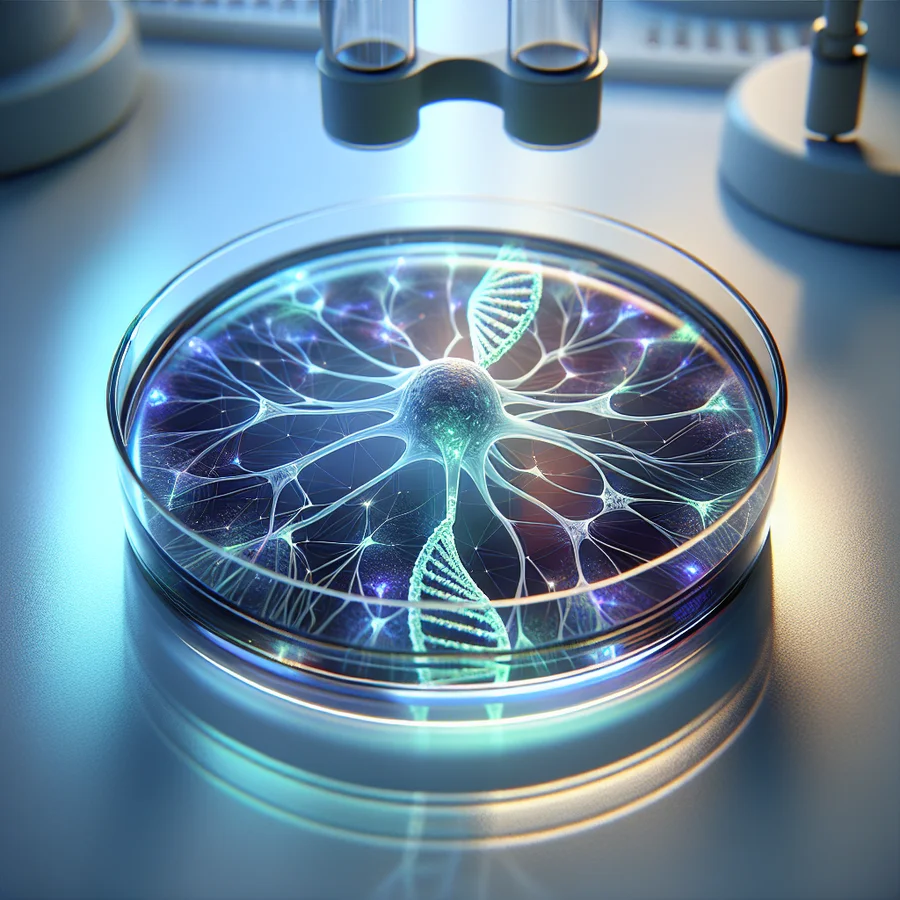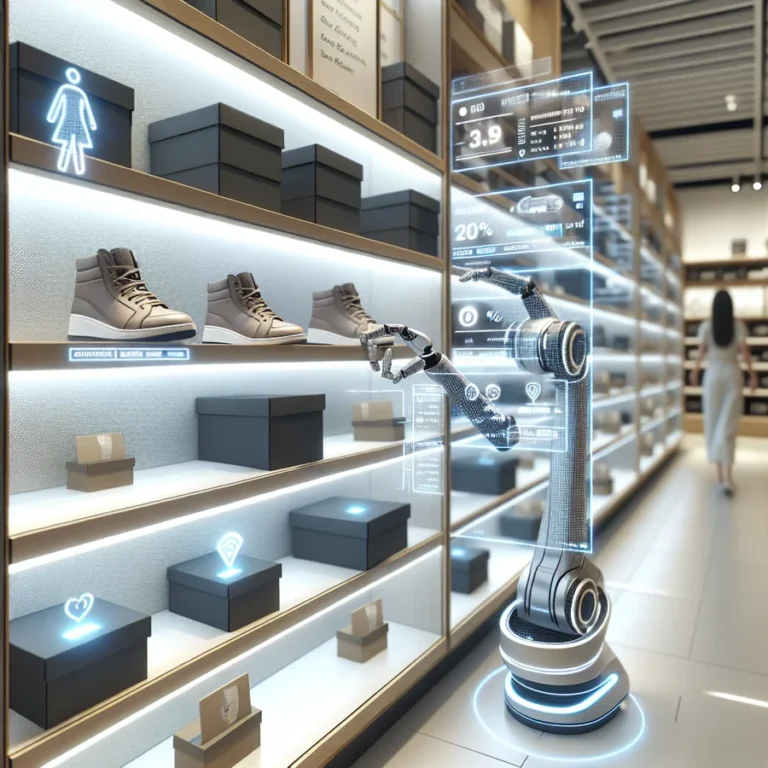AI in Pharmaceuticals: Enhancing Drug Discovery and Development
Imagine finding new medicines faster and more efficiently. That’s the promise of AI in pharmaceuticals. Artificial intelligence is revolutionizing how drugs are discovered, developed, and brought to market. This guide explores how AI is transforming the pharmaceutical landscape, making the process quicker, cheaper, and more effective.
From identifying potential drug candidates to predicting clinical trial outcomes, AI in pharmaceuticals offers unprecedented opportunities. It’s not just about speeding things up; it’s about making smarter, more informed decisions at every stage. Let’s dive into the exciting world of AI and its impact on creating life-saving treatments.
The Role of AI in Revolutionizing Pharmaceuticals
Artificial intelligence (AI) is no longer a futuristic concept. It’s a present-day reality transforming various industries, including pharmaceuticals. AI’s ability to analyze vast datasets, identify patterns, and make predictions is proving invaluable in drug discovery and development. This section explores the key ways AI is revolutionizing the pharmaceutical industry.
What is Artificial Intelligence (AI)?
Artificial Intelligence (AI) refers to machine-based systems. These systems make predictions, recommendations, or decisions, for a given set of human-defined objectives. They influence real or virtual environments. AI systems use machine- and human-based inputs to perceive real and virtual environments. They abstract these perceptions into models through automated analysis. Model inference helps them formulate options for information or action.
Machine learning (ML) is a subset of AI. ML techniques train AI algorithms. This improves their performance at a task based on data. Think of it like teaching a computer to learn from experience, just like we do!
Speeding Up Drug Discovery with AI
Traditional drug discovery is a lengthy and expensive process. It can take years and billions of dollars to bring a single drug to market. AI can significantly accelerate this process by:
- Identifying potential drug targets: AI algorithms can analyze vast amounts of biological data to identify promising targets for new drugs.
- Screening compounds: AI can screen millions of compounds to predict their potential effectiveness against a specific target.
- Predicting drug interactions: AI can predict how different drugs will interact with each other, helping to avoid potentially harmful combinations.
For example, AI can analyze the human genome to pinpoint genes involved in diseases. Then, it can simulate how different compounds might interact with those genes. This helps researchers focus on the most promising candidates, saving time and resources.
Improving Clinical Trials with AI
Clinical trials are a crucial step in drug development. They determine whether a drug is safe and effective for human use. AI can improve clinical trials by:
- Optimizing trial design: AI can help design more efficient trials, reducing the number of participants needed and the time required.
- Identifying suitable patients: AI can analyze patient data to identify individuals who are most likely to benefit from a particular drug.
- Predicting trial outcomes: AI can predict the likelihood of a trial’s success, helping to avoid costly failures.
Imagine AI analyzing patient data to predict who will respond best to a new cancer drug. This allows doctors to personalize treatment plans and improve patient outcomes. It also reduces the risk of exposing patients to ineffective treatments.
AI in Post-Market Drug Surveillance
Even after a drug is approved and available on the market, monitoring its safety and effectiveness is crucial. AI can assist in post-market surveillance by:
- Analyzing real-world data: AI can analyze data from electronic health records and other sources to identify potential side effects or unexpected drug interactions.
- Detecting adverse events: AI can detect patterns in patient data that may indicate adverse events, allowing for prompt intervention.
- Improving drug safety: By identifying and addressing potential safety issues, AI can help improve the overall safety of drugs on the market.
For instance, AI can analyze social media posts and online forums to identify patients reporting unusual side effects. This can provide early warnings of potential safety concerns that might otherwise go unnoticed.
Applications of AI in Pharmaceutical Research and Development
The applications of AI in pharmaceutical research and development are vast and varied. From target identification to drug repurposing, AI is transforming every stage of the process. Let’s explore some specific examples of how AI is being used to create better medicines.
Target Identification and Validation
Identifying the right target is the first and most critical step in drug discovery. AI algorithms can analyze massive datasets of genomic, proteomic, and other biological data to identify potential drug targets. This process involves:
- Analyzing genomic data: AI can identify genes that are associated with specific diseases.
- Analyzing proteomic data: AI can identify proteins that play a role in disease pathways.
- Predicting protein structures: AI tools like AlphaFold can predict the 3D structure of proteins, which is essential for understanding their function and designing drugs that can interact with them.
For example, AI can analyze the genomes of patients with Alzheimer’s disease to identify genes that are more likely to be mutated in these individuals. These genes then become potential targets for new Alzheimer’s drugs.
Drug Design and Discovery
Once a target has been identified, the next step is to design and discover drugs that can effectively interact with it. AI can accelerate this process by:
- Virtual screening: AI can screen millions of compounds to predict their binding affinity to a specific target.
- De novo drug design: AI can design new molecules from scratch with desired properties, such as high binding affinity and low toxicity.
- Predicting drug properties: AI can predict various properties of a drug, such as its solubility, permeability, and metabolic stability.
Imagine AI designing a new drug molecule that fits perfectly into the active site of a cancer-causing protein. This drug could then be synthesized and tested in the lab to see if it effectively inhibits the protein’s activity.
Drug Repurposing
Drug repurposing involves finding new uses for existing drugs. This can be a faster and cheaper way to develop new treatments, as the safety and efficacy of the drug have already been established. AI can help identify potential drug repurposing candidates by:
- Analyzing drug-target interactions: AI can identify drugs that may interact with targets involved in other diseases.
- Analyzing clinical data: AI can analyze data from clinical trials and electronic health records to identify unexpected benefits of existing drugs.
- Predicting drug efficacy: AI can predict whether a drug is likely to be effective against a new disease based on its known properties and mechanisms of action.
For example, AI could identify that a drug originally developed for treating high blood pressure may also be effective in treating a rare genetic disorder. This could lead to a new treatment option for patients with this disorder.
Personalized Medicine
Personalized medicine involves tailoring treatments to individual patients based on their unique characteristics, such as their genetic makeup, lifestyle, and environment. AI can play a crucial role in personalized medicine by:
- Analyzing patient data: AI can analyze vast amounts of patient data to identify patterns and predict treatment outcomes.
- Predicting drug response: AI can predict how a patient is likely to respond to a particular drug based on their individual characteristics.
- Developing personalized treatment plans: AI can help develop personalized treatment plans that are tailored to the specific needs of each patient.
Imagine AI analyzing a cancer patient’s tumor genome to identify specific mutations that are driving the cancer’s growth. This information can then be used to select the most effective targeted therapy for that patient.
Generative AI in Pharmaceuticals
Generative AI is transforming the pharmaceutical industry. It can synthesize data and generate content, including visual, textual, and molecular information. This technology is especially impactful due to its multimodal nature, using language, images, omics, and patient data to understand and solve disease processes. By accelerating therapy development, generative AI helps address the issue of asset lifecycle compression, where companies have less time to capture a drug’s value.
Generative AI’s primary use cases include knowledge extraction, content and compound generation, customer engagement, and coding and software generation. Companies that move quickly to adopt this technology can gain a competitive edge. However, it’s crucial to have a clear roadmap for scaling and to prioritize generative AI as a top initiative.
Benefits of AI in Pharmaceutical Development
The integration of AI into pharmaceutical development offers a multitude of benefits. These advantages span across various stages, from initial research to final drug approval. Let’s explore the key benefits that AI brings to the pharmaceutical industry.
Accelerated Research and Development
One of the most significant benefits of AI is its ability to accelerate the research and development process. AI algorithms can analyze vast datasets much faster than humans, identifying potential drug candidates and predicting their effectiveness. This leads to:
- Reduced time to market: AI can significantly shorten the time it takes to bring a new drug to market, allowing patients to access life-saving treatments sooner.
- Increased efficiency: AI can automate many of the manual tasks involved in drug discovery, freeing up researchers to focus on more creative and strategic activities.
- Lower development costs: By accelerating the development process and reducing the risk of failure, AI can help lower the overall cost of bringing a new drug to market.
For example, AI can analyze scientific literature to identify potential drug targets in a fraction of the time it would take a human researcher. This allows companies to quickly focus their efforts on the most promising areas of research.
Improved Accuracy and Precision
AI algorithms are trained on vast datasets and can identify patterns and relationships that humans may miss. This leads to improved accuracy and precision in various aspects of drug development, such as:
- Target identification: AI can identify drug targets with greater accuracy, increasing the likelihood of developing effective drugs.
- Compound screening: AI can screen compounds with greater precision, identifying those that are most likely to bind to a specific target.
- Predicting clinical trial outcomes: AI can predict clinical trial outcomes with greater accuracy, helping to avoid costly failures.
Imagine AI predicting that a particular compound is highly likely to be effective against a specific cancer target. This allows researchers to prioritize that compound for further testing, increasing the chances of developing a successful cancer drug.
Enhanced Decision-Making
AI provides researchers and developers with valuable insights that can inform their decision-making. By analyzing vast datasets and identifying patterns, AI can help make more informed decisions about:
- Which drug candidates to pursue: AI can help prioritize drug candidates based on their likelihood of success.
- How to design clinical trials: AI can help design more efficient and effective clinical trials.
- How to personalize treatment plans: AI can help develop personalized treatment plans that are tailored to the specific needs of each patient.
For example, AI can analyze patient data to identify individuals who are most likely to respond to a particular drug. This information can then be used to design clinical trials that are more likely to succeed.
Cost Reduction
The pharmaceutical industry is known for its high costs. AI can help reduce costs in several ways:
- Reducing the time and resources required for drug discovery: AI can accelerate the drug discovery process, reducing the time and resources required to identify potential drug candidates.
- Improving the efficiency of clinical trials: AI can help design more efficient clinical trials, reducing the number of participants needed and the time required.
- Reducing the risk of failure: AI can predict clinical trial outcomes with greater accuracy, helping to avoid costly failures.
By reducing costs and improving efficiency, AI can help make new drugs more affordable and accessible to patients.
Challenges and Considerations for AI Implementation in Pharmaceuticals
While the potential of AI in pharmaceuticals is immense, there are also challenges and considerations that must be addressed for successful implementation. These challenges range from data quality and regulatory hurdles to ethical concerns and the need for skilled personnel. Let’s explore these key challenges and considerations.
Data Quality and Accessibility
AI algorithms are only as good as the data they are trained on. Poor quality or incomplete data can lead to inaccurate predictions and unreliable results. Therefore, ensuring data quality and accessibility is crucial for successful AI implementation. This involves:
- Data standardization: Standardizing data formats and terminologies to ensure consistency and compatibility.
- Data cleaning: Removing errors, inconsistencies, and redundancies from the data.
- Data integration: Integrating data from various sources to create a comprehensive and unified dataset.
- Data privacy: Protecting patient privacy and complying with data privacy regulations.
For example, if data from different hospitals uses different codes for the same diagnosis, AI algorithms may not be able to accurately identify patterns and predict treatment outcomes. Therefore, standardizing data formats and terminologies is essential.
Regulatory Hurdles
The pharmaceutical industry is highly regulated, and the use of AI in drug development and manufacturing is subject to regulatory scrutiny. Companies must ensure that their AI systems comply with all applicable regulations, such as those related to data privacy, patient safety, and drug efficacy. This involves:
- Understanding regulatory requirements: Staying up-to-date on the latest regulatory requirements related to AI in pharmaceuticals.
- Developing validation strategies: Developing strategies for validating AI systems to ensure their accuracy and reliability.
- Working with regulatory agencies: Collaborating with regulatory agencies to address any concerns and ensure compliance.
The FDA (Food and Drug Administration) recognizes the increasing use of AI throughout the drug product lifecycle. They are committed to ensuring drugs are safe and effective while facilitating innovations in their development. The FDA published a draft guidance in 2025 titled, “Considerations for the Use of Artificial Intelligence to Support Regulatory Decision Making for Drug and Biological Products.” This guidance provides recommendations to the industry on using AI to produce information or data that supports regulatory decision-making regarding safety, effectiveness, or quality for drugs.
Ethical Considerations
The use of AI in pharmaceuticals raises several ethical considerations, such as:
- Bias: AI algorithms can perpetuate and amplify existing biases in the data, leading to unfair or discriminatory outcomes.
- Transparency: AI systems can be complex and opaque, making it difficult to understand how they arrive at their decisions.
- Accountability: It can be difficult to assign responsibility for errors or adverse events caused by AI systems.
For example, if an AI algorithm is trained on data that primarily includes patients of a certain ethnicity, it may not be accurate or effective for patients of other ethnicities. Therefore, it’s crucial to address bias in AI algorithms and ensure that they are fair and equitable.
Need for Skilled Personnel
Implementing AI in pharmaceuticals requires a skilled workforce with expertise in areas such as data science, machine learning, and software engineering. However, there is a shortage of qualified professionals in these fields. Therefore, companies need to invest in training and development to build a skilled workforce that can effectively implement and manage AI systems. This involves:
- Hiring data scientists and AI experts: Recruiting professionals with expertise in data science, machine learning, and software engineering.
- Providing training and development opportunities: Offering training programs and workshops to upskill existing employees in AI-related areas.
- Collaborating with universities and research institutions: Partnering with academic institutions to access talent and expertise.
By building a skilled workforce, companies can ensure that they have the expertise needed to successfully implement and manage AI systems.
Integration with Existing Systems
Integrating AI systems with existing pharmaceutical infrastructure can be complex and challenging. Many pharmaceutical companies have legacy systems that are not easily compatible with AI technologies. Therefore, careful planning and execution are required to ensure seamless integration. This involves:
- Assessing existing infrastructure: Evaluating the current IT infrastructure to identify any compatibility issues.
- Developing integration strategies: Developing strategies for integrating AI systems with existing systems in a way that minimizes disruption.
- Testing and validation: Thoroughly testing and validating the integrated systems to ensure they are working correctly.
By carefully planning and executing the integration process, companies can minimize disruption and ensure that AI systems are seamlessly integrated with their existing infrastructure.
Future Trends in AI for Pharmaceuticals
The field of AI is constantly evolving, and there are several exciting trends on the horizon that promise to further transform the pharmaceutical industry. These trends include advancements in generative AI, increased use of federated learning, and the development of more sophisticated AI-powered diagnostic tools. Let’s explore these future trends in AI for pharmaceuticals.
Advancements in Generative AI
Generative AI is a type of AI that can generate new data, such as images, text, and even molecules. In the pharmaceutical industry, generative AI is being used to:
- Design new drug molecules: Generative AI can design new molecules with desired properties, such as high binding affinity and low toxicity.
- Generate synthetic data: Generative AI can generate synthetic data to augment real-world data, which can be useful for training AI algorithms when real-world data is limited.
- Create personalized treatment plans: Generative AI can create personalized treatment plans that are tailored to the specific needs of each patient.
As generative AI technology continues to advance, we can expect to see even more innovative applications in the pharmaceutical industry.
Increased Use of Federated Learning
Federated learning is a type of machine learning that allows AI algorithms to be trained on decentralized data without sharing the data itself. This is particularly useful in the pharmaceutical industry, where data is often sensitive and subject to privacy regulations. Federated learning can be used to:
- Train AI algorithms on data from multiple hospitals: Federated learning can allow AI algorithms to be trained on data from multiple hospitals without sharing patient data, which can improve the accuracy and generalizability of the algorithms.
- Develop personalized treatment plans: Federated learning can be used to develop personalized treatment plans that are tailored to the specific needs of each patient, even when data is distributed across multiple institutions.
- Discover new drug targets: Federated learning can be used to discover new drug targets by analyzing data from multiple sources without compromising data privacy.
As data privacy concerns continue to grow, federated learning is likely to become an increasingly important tool for AI in pharmaceuticals.
AI-Powered Diagnostic Tools
AI-powered diagnostic tools are being developed to improve the accuracy and speed of disease diagnosis. These tools can analyze medical images, such as X-rays and MRIs, to detect signs of disease that may be missed by human radiologists. AI-powered diagnostic tools can also analyze patient data to identify individuals who are at risk of developing certain diseases. These tools can be used to:
- Detect cancer early: AI-powered diagnostic tools can detect cancer at an early stage, when it is more treatable.
- Diagnose rare diseases: AI-powered diagnostic tools can help diagnose rare diseases that may be difficult to identify using traditional methods.
- Personalize treatment plans: AI-powered diagnostic tools can help personalize treatment plans by providing more accurate information about a patient’s condition.
As AI technology continues to advance, we can expect to see even more sophisticated AI-powered diagnostic tools that can improve patient outcomes.
Advancing Diabetes Care with AI
AI is also making significant strides in diabetes care. Predictive technology is improving daily management for individuals with diabetes. For example, AI-powered systems can analyze glucose levels and predict future fluctuations, helping patients make informed decisions about insulin dosages and lifestyle adjustments. These advancements are transforming diabetes management and improving the quality of life for those living with the condition.
Conclusion
AI in pharmaceuticals is not just a passing trend; it’s a fundamental shift in how drugs are discovered, developed, and delivered. From speeding up research to personalizing treatments, AI offers immense potential to improve patient outcomes and transform the pharmaceutical industry. While challenges remain, the benefits of AI are undeniable. As AI technology continues to evolve, we can expect even more groundbreaking applications that will revolutionize healthcare and improve the lives of millions.
Frequently Asked Questions (FAQs)
How is AI currently being used in drug discovery?
AI is used to analyze large datasets to identify potential drug targets, screen compounds for effectiveness, and predict drug interactions. It accelerates the discovery process and reduces costs.
What are the main benefits of using AI in pharmaceutical development?
The main benefits include accelerated research and development, improved accuracy and precision, enhanced decision-making, and cost reduction. AI helps bring drugs to market faster and more efficiently.
What are the challenges of implementing AI in pharmaceuticals?
Challenges include ensuring data quality and accessibility, navigating regulatory hurdles, addressing ethical considerations, and building a skilled workforce.
How can AI help with personalized medicine?
AI can analyze patient data to predict drug response and develop personalized treatment plans tailored to individual needs, improving treatment outcomes.
What role does generative AI play in the pharmaceutical industry?
Generative AI can design new drug molecules, generate synthetic data, and create personalized treatment plans, accelerating the drug discovery process.
What is federated learning, and why is it important in pharmaceuticals?
Federated learning allows AI algorithms to be trained on decentralized data without sharing the data itself, which is crucial for protecting patient privacy and complying with data regulations.
How are AI-powered diagnostic tools improving healthcare?
AI-powered diagnostic tools improve the accuracy and speed of disease diagnosis by analyzing medical images and patient data, leading to earlier detection and more effective treatment.






